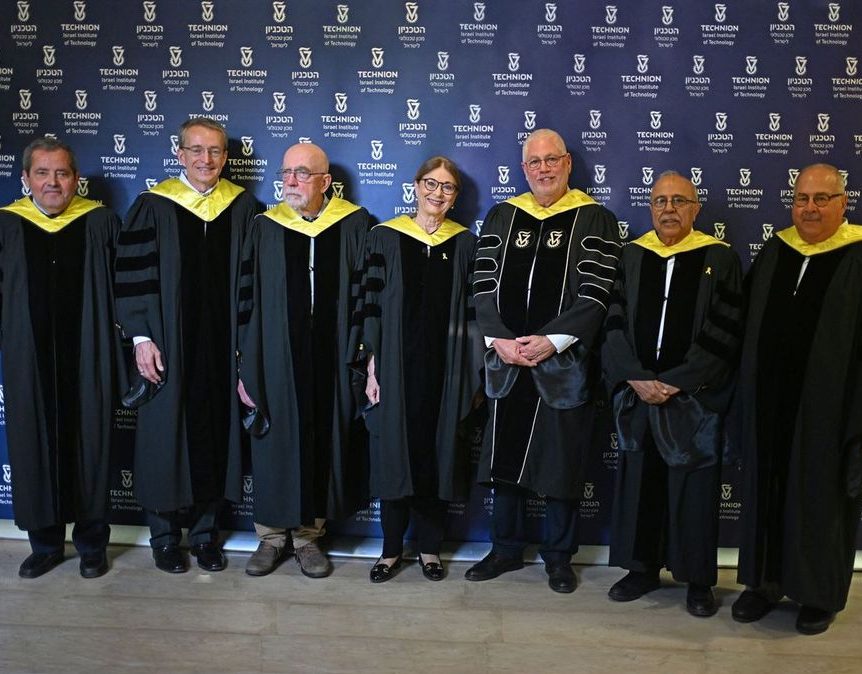Technion Awards Harvey Prize to Pioneers in Cancer Epigenetics
Professors Baylin, Feinberg, and Jones honored for breakthroughs in diagnosis and treatment through epigenetic research
The Technion awarded the Harvey Prize in Science and Technology to Prof. Stephen Baylin, Prof. Andrew Feinberg, and Prof. Peter Jones for their groundbreaking research in the field of cancer epigenetics.
Technion President Prof. Uri Sivan said, “The prestigious Harvey Prize is awarded annually by the Technion for exceptional achievements in science, technology, and human health. We are proud to award it this year to Professors Baylin, Feinberg, and Jones. The Technion awards the Harvey Prize to researchers whose work has contributed significantly to humanity and human welfare. The pioneering work of these three researchers has brought about a turning point in epigenetics research and revealed its vital influence on proper cell function and the outbreak and development of diseases, including cancer. Their research paved the way for developing new approaches in diagnosis and accelerated the development of treatment methods based on influencing the epigenetic mechanism.”
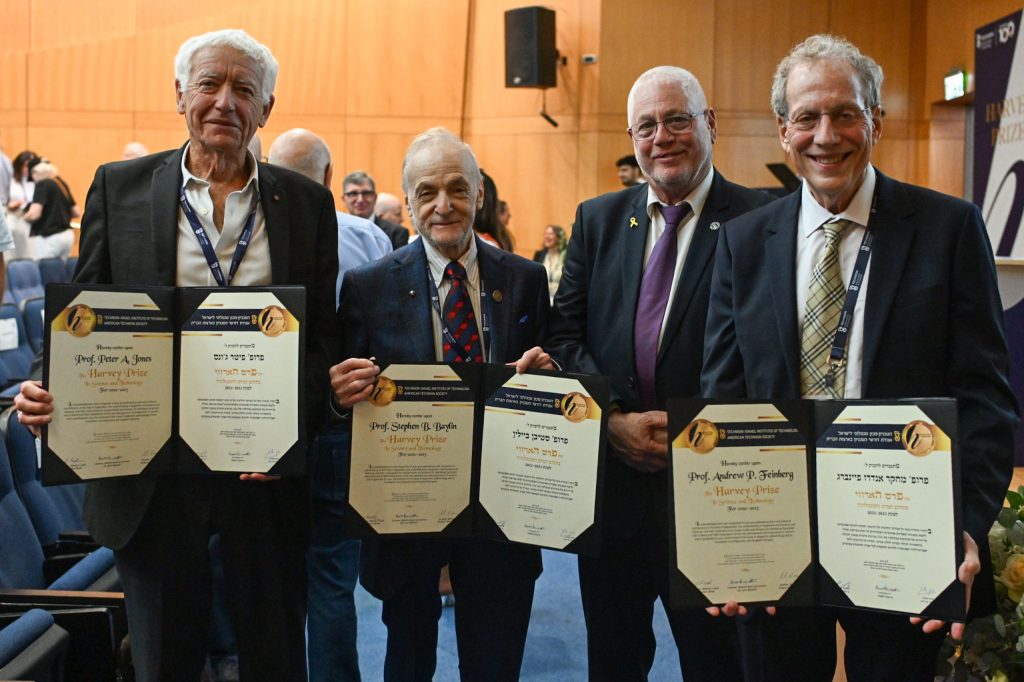
Epigenetics is a scientific field that focuses on changes in genome activity that are not dependent on DNA sequence. Epigenetics explains how identical DNA sequences may lead to different outcomes and profound implications for various aspects of health and disease. One of those epigenetic processes studied in depth by the three prize winners is DNA methylation.
Methylation largely determines which genes will be silenced and which will be activated, leading to protein creation. Proper methylation markers are essential to our health and affect embryonic development, cell division, cell health, responses to environmental changes, and more. Disruption in the methylation process can lead to serious diseases, including cancer, diabetes, heart disease, neurological disorders, and autoimmune diseases.
The work of the three researchers separately and jointly has revolutionized the understanding of epigenetics’ role in cell division and function. Their work, which combines epigenetics with discoveries related to genetic processes, has changed outdated paradigms regarding cancer development and refuted the belief that disease development is driven by genetic mutations alone. Medical treatments based on their discoveries in the field of the epigenome are already saving lives today and improving patients’ quality of life. This connection between basic science and applied medicine is what led to the decision to award the Harvey Prize to Prof. Stephen Baylin, Prof. Andrew Feinberg, and Prof. Peter Jones.
About the Laureates
Prof. Stephen Baylin, Professor of Cancer Research at the Sidney Kimmel Comprehensive Cancer Center at Johns Hopkins, was born in North Carolina and completed his B.Sc. and M.D. at Duke University. He specialized in research at the National Institutes of Health (NIH) and post-doctoral studies at Johns Hopkins. He is a member of the U.S. National Academy of Sciences and has won many awards, including the Shubitz Cancer Research Prize from the University of Chicago, the Kirk A. Landon Prize for Basic Cancer Research from the American Association for Cancer Research, and the American Cancer Society’s Medal of Honor.
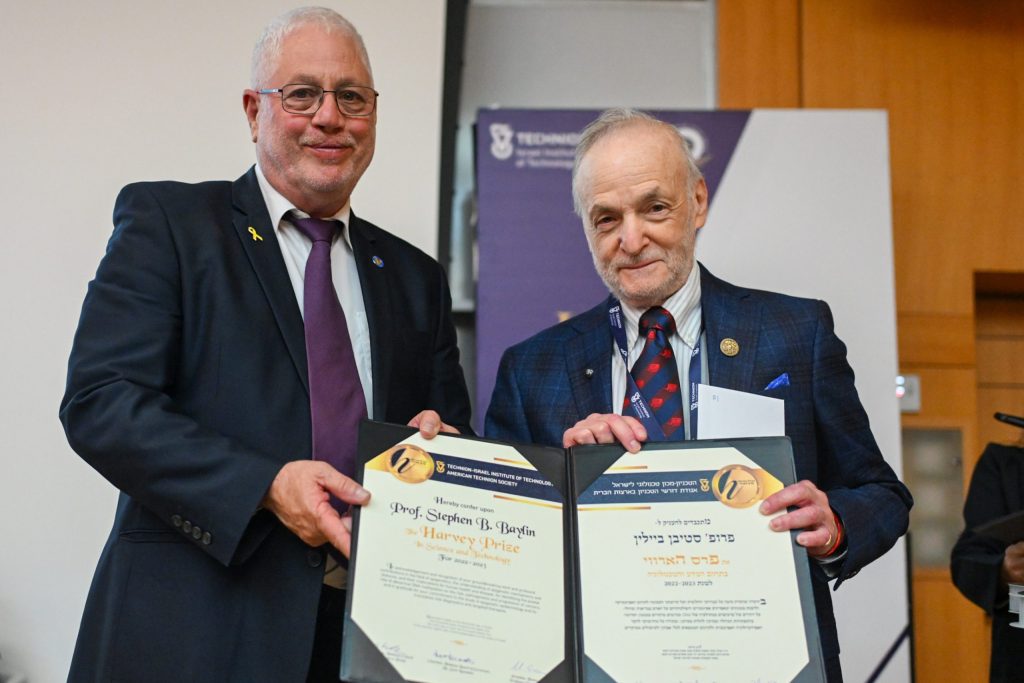
Distinguished Prof. Andrew Feinberg of the Johns Hopkins University School of Medicine was born in Pennsylvania. He earned his M.D. in the accelerated medical program at Johns Hopkins University and a master’s degree in public health. He conducted postdoctoral research in developmental biology at the University of California, San Diego, medical training at the University of Pennsylvania, and advanced studies in genetics at Johns Hopkins. His numerous honors include honorary doctorates from the University of Amsterdam, University of Uppsala, and Karolinska Institute, the NIH Director’s Pioneer Award, a fellowship in the American Academy of Arts and Sciences, and membership in the U.S. National Academy of Medicine.
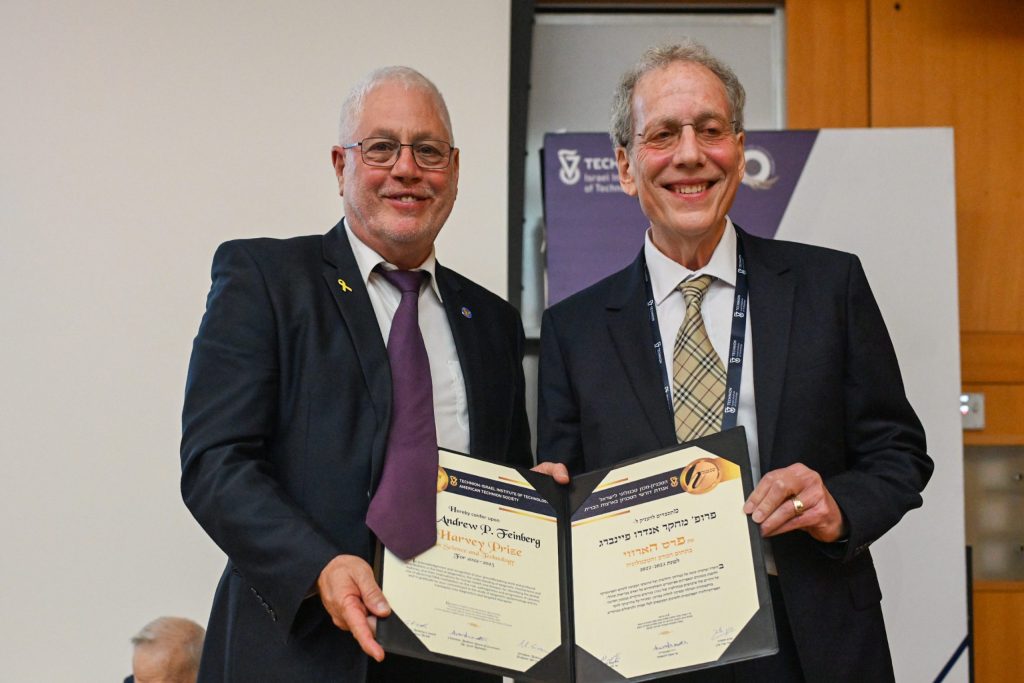
Prof. Peter Jones from the Van Andel Institute in Michigan was born in South Africa, grew up in Zimbabwe, and completed his Ph.D. at the University of London. He is currently president and chief scientist of the Van Andel Institute, where he works on the relationship between DNA methylation, genetic expression, and cell division. Among other honors, he has received the Honor Medal of the American Cancer Society and the Kirk A. Landon Prize for Basic Cancer Research from the American Association for Cancer Research, served as president of the American Association for Cancer Research, and is a member of the American Association for the Advancement of Science, the American National Academy of Sciences, the American Academy of Arts and Sciences, and the Academy of the American Association for Cancer Research.
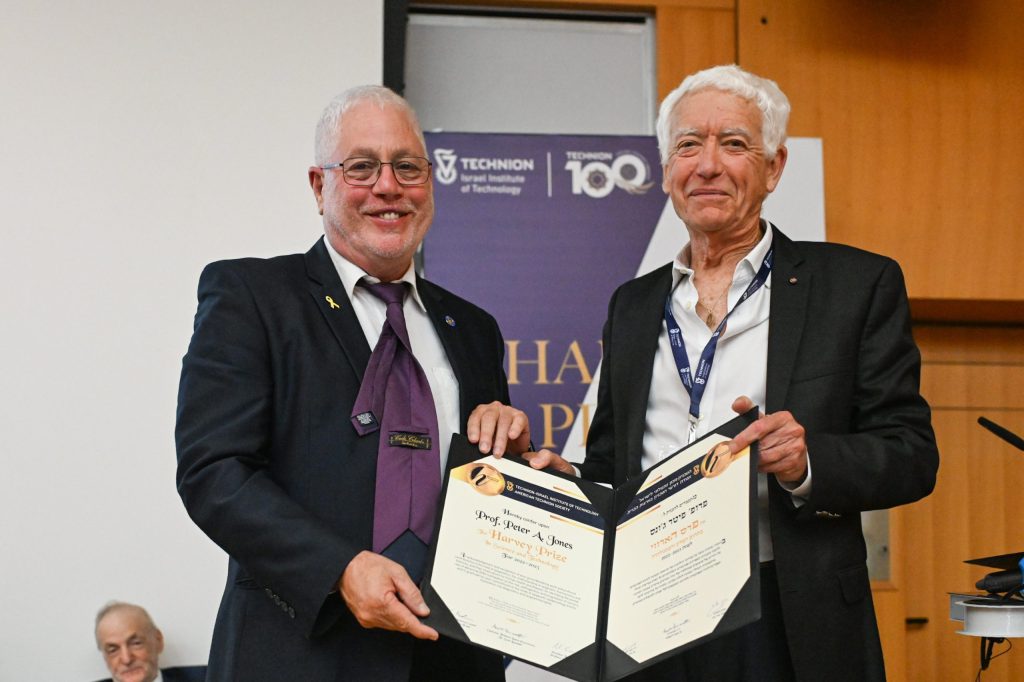
Prof. Stephen Baylin said during the award ceremony: “This is truly a special moment, and I am deeply grateful to the Technion, to the Technion leadership, and to all the people who helped us get here. It is moving to know that the Technion looks at us and says: You succeeded! Thanks also to my family, who moved with me from place to place for the sake of my career, and thanks to all my colleagues and students who placed their trust in me and led the research to places I couldn’t have imagined. This is my first visit to Israel, and it’s a magical experience — to see such a young country and how it deals with challenges.”
Prof. Andrew Feinberg spoke about his childhood in the U.S. and the opportunity he had to study one summer at Cornell University at just 15 years old, where he met Prof. Elisha Netanyahu from the Technion — “so in fact, my first academic course was a Technion course.” He moved from mathematics to computer science, and when he decided it was worth developing “a computer that thinks like us,” he continued to study medicine at Johns Hopkins, eventually becoming one of the leading researchers in the field of epigenetics.
Prof. Peter Jones, who grew up in Zimbabwe, shared during the ceremony that he fell in love with chemistry at the age of 13 — “a total love. I bought books and materials, and did experiments.” Together with his wife Veronica, he immigrated to the United States, and there, fifty years ago, the event occurred that changed his scientific life. “I was conducting an experiment on the effect of an anti-cancer drug on tumors in a Petri dish. When I returned to the lab after the weekend, I saw under the microscope cells that weren’t supposed to be there — long fibers resembling muscle fibers, vibrating like muscle cells. It turned out the drug had transformed non-muscle cells into muscle cells. I felt like Alexander Fleming, who returned from vacation to his lab and discovered that a fungus had contaminated his cultures, and thus, penicillin was invented. That’s how we arrived at a groundbreaking idea: changing a cell’s identity using drugs that affect gene expression.”
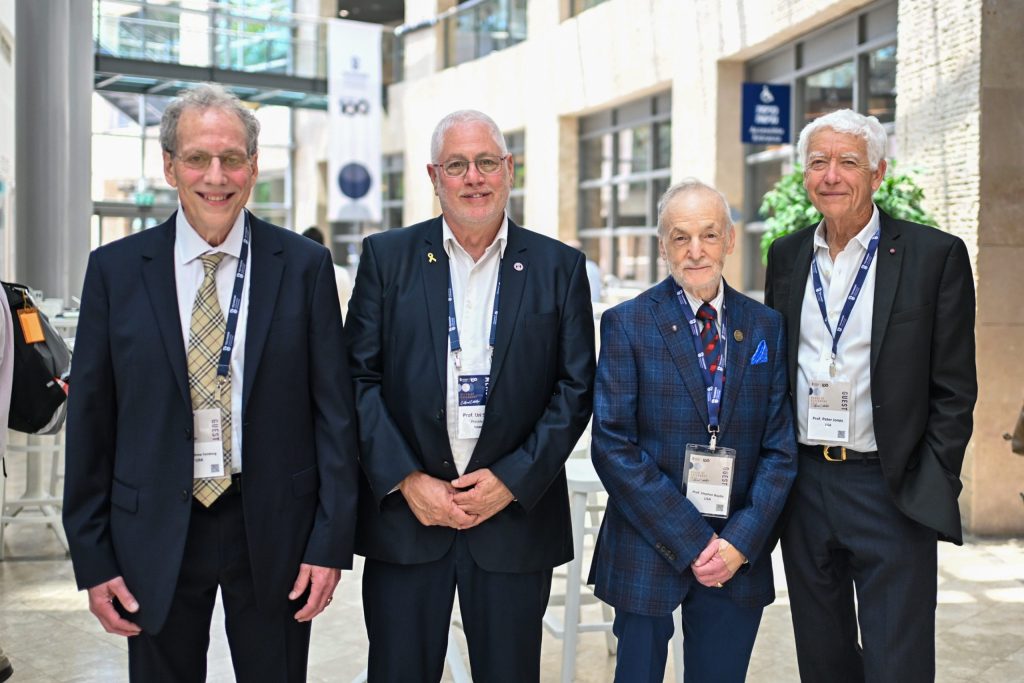
The Harvey Prize, the most prestigious prize awarded by the Technion, was founded in 1971 by Leo Harvey (1887-1973), an industrialist and inventor, a devoted friend of the Technion and the State of Israel, and one of their faithful supporters. It is awarded annually by the Technion for exceptional achievements in science, technology, and human health and significant contributions to humanity. Over the years, the prize has become a “Nobel predictor” since more than 30% of its winners have later won the Nobel Prize.



